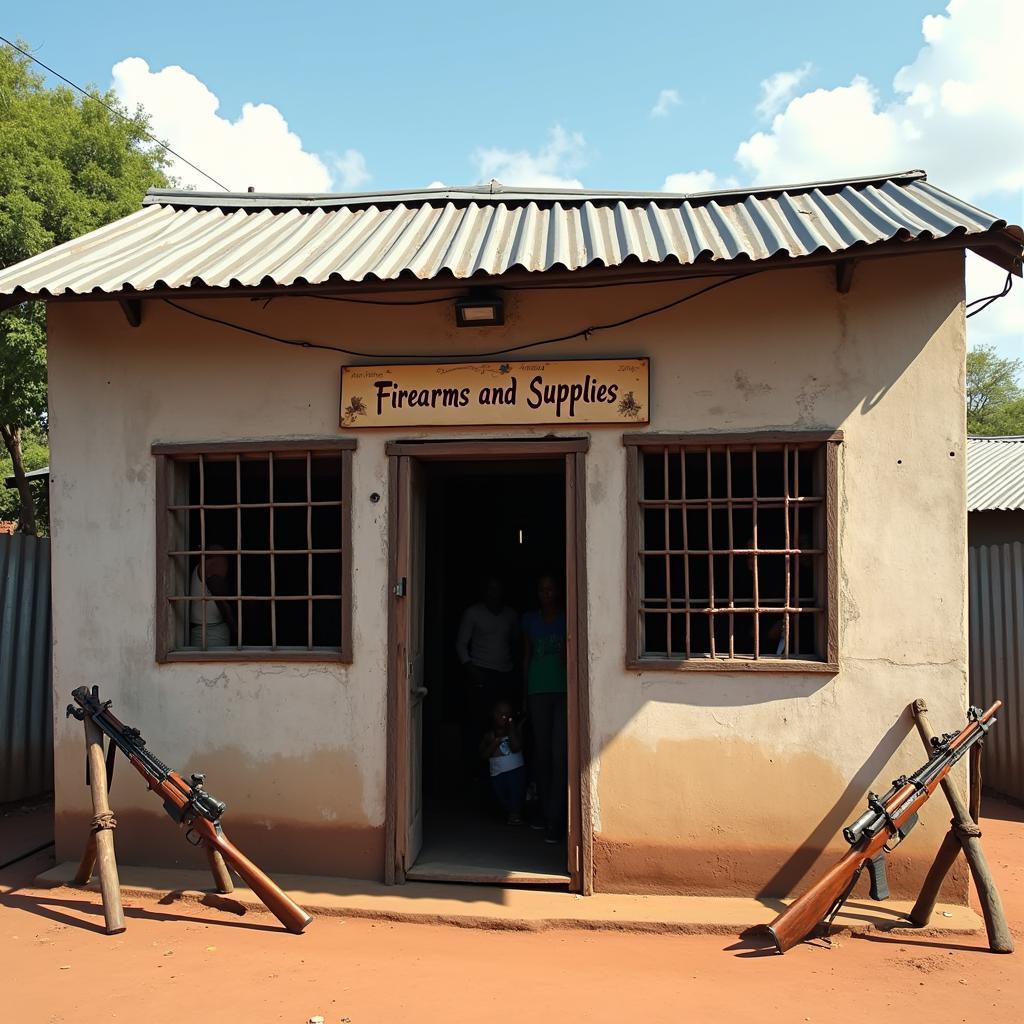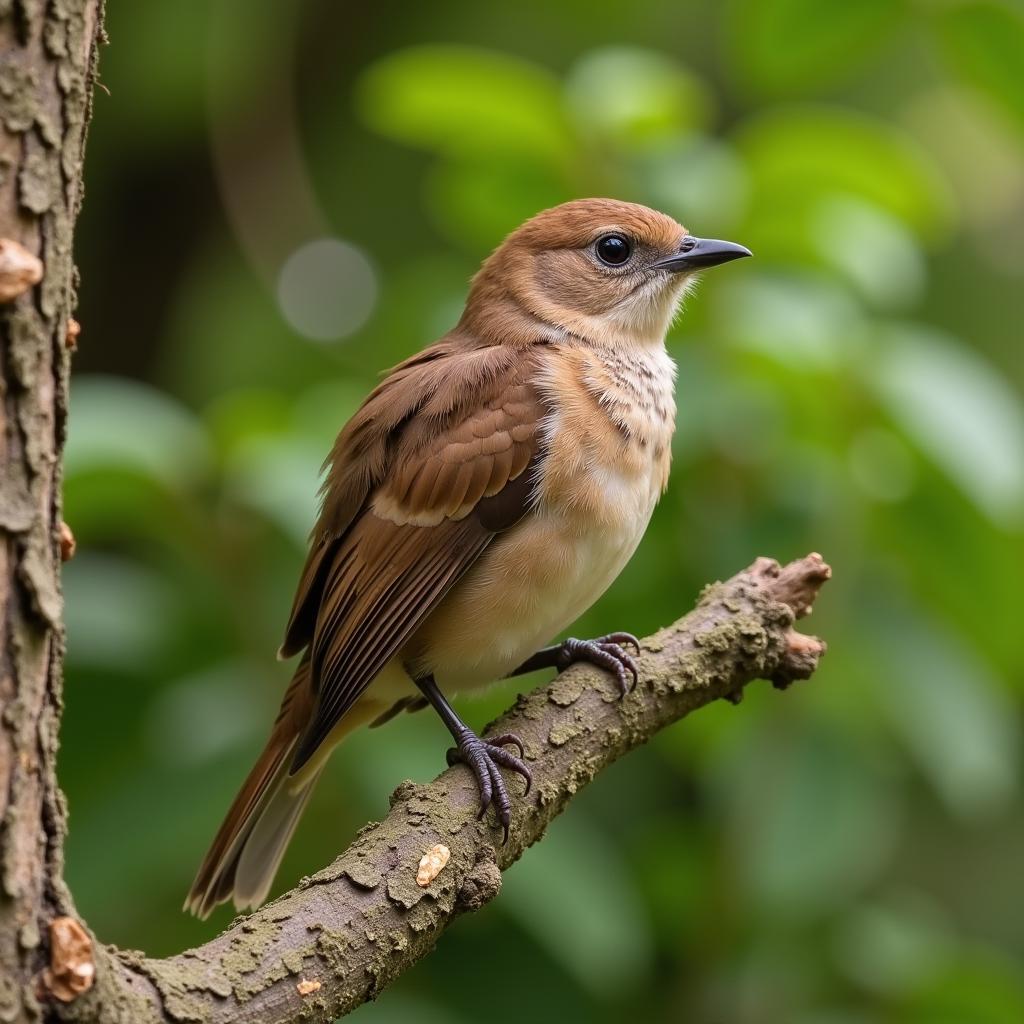A Taste of Africa: Exploring the World of African Game Meats
African Game Meats offer a unique and flavorful culinary journey, deeply intertwined with the continent’s rich cultural heritage and vast landscapes. From the savannas of the south to the deserts of the north, these meats represent a sustainable and traditional source of protein for many communities. Let’s delve into the fascinating world of African game meats, exploring their flavors, cultural significance, and the growing global interest in these exotic delicacies.
A Diverse Palette: Beyond the Familiar
While beef, pork, and chicken grace dinner tables worldwide, African game meats present a more diverse array of flavors and textures. Think beyond the usual and envision succulent cuts of antelope, zebra, warthog, and crocodile, each with its distinct taste profile.
Unveiling Unique Flavors
One of the most compelling aspects of African game meats is their leanness and rich flavor profiles. Often compared to beef, these meats tend to be lower in fat and cholesterol, offering a healthy alternative to commercially raised livestock.
- Springbok: Known for its tender texture and mild, slightly sweet flavor reminiscent of venison, springbok is a popular choice for steaks and roasts.
- Kudu: This large antelope offers lean meat with a robust, gamey flavor often compared to elk. It’s best enjoyed as steaks, sausages, or in stews.
- Zebra: Lean and flavorful, zebra meat boasts a slightly sweet and gamey taste, often likened to horse meat. It’s best marinated before grilling or pan-searing.
- Warthog: This wild pig offers surprisingly tender and flavorful meat with a rich, nutty taste. Warthog is often slow-cooked to bring out its best qualities.
Rooted in Tradition: Cultural Significance of Game Meats
Across the African continent, game meats are deeply woven into the cultural tapestry. For centuries, these meats have been more than just sustenance; they represent a connection to the land, a symbol of celebration, and a vital part of traditional ceremonies.
Ancient Hunting Practices and Communal Feasts
In many African cultures, hunting game is a revered tradition passed down through generations. It’s a practice requiring skill, knowledge of the land, and deep respect for the animals. Successful hunts are often celebrated with communal feasts, strengthening community bonds and honoring ancestral traditions.
A Sustainable Harvest: Balancing Tradition and Conservation
In modern times, sustainable hunting practices and game farming play a crucial role in preserving wildlife populations while ensuring the availability of these traditional food sources. Many countries have implemented regulations and quotas to manage hunting sustainably and promote conservation efforts.
A Global Curiosity: African Game Meats on the Rise
The interest in African game meats extends far beyond the continent itself. As global palates become more adventurous, these exotic meats have piqued the curiosity of food enthusiasts and chefs worldwide.
Appealing to Health-Conscious Consumers
The lean and protein-rich nature of African game meats aligns with the growing trend of health-conscious eating. With lower fat content than many commercially raised meats, they offer a delicious and nutritious alternative.
A Star on the Menu: From Rustic to Refined
Chefs around the world are increasingly incorporating African game meats into their menus, showcasing their versatility and unique flavors. From rustic stews and hearty roasts to elegant carpaccio and innovative charcuterie boards, these meats are finding their place in both casual and fine dining experiences.
The Future of African Game Meats
As global interest in sustainable and ethically sourced foods continues to grow, African game meats are poised to gain even wider recognition. Their unique flavors, cultural significance, and potential for sustainable production make them a fascinating and important part of the culinary world, offering a taste of Africa’s rich heritage.
FAQs About African Game Meats
1. What does African game meat taste like? African game meats offer a range of flavors, often described as lean, rich, and slightly gamey. The taste can vary depending on the specific animal, cut of meat, and preparation method.
2. Where can I buy African game meat? Specialty butcher shops, online retailers specializing in exotic meats, and some gourmet grocery stores may carry African game meats.
3. How should I cook African game meat? Many African game meats benefit from marinating before cooking. They can be grilled, roasted, pan-seared, or slow-cooked, depending on the cut and desired outcome.
4. Is African game meat healthy? Generally, African game meats are leaner and lower in fat and cholesterol than many commercially raised meats, making them a healthy protein option.
5. Are there any sustainability concerns with African game meats? Sustainable hunting practices and game farming are crucial for ensuring the ethical and responsible sourcing of African game meats. Look for suppliers who prioritize conservation and ethical harvesting methods.
Need Help?
For inquiries about African game meats or any assistance, contact us at:
Phone: +255768904061
Email: [email protected]
Address: Mbarali DC Mawindi, Kangaga, Tanzania
Our dedicated customer care team is available 24/7 to assist you.

